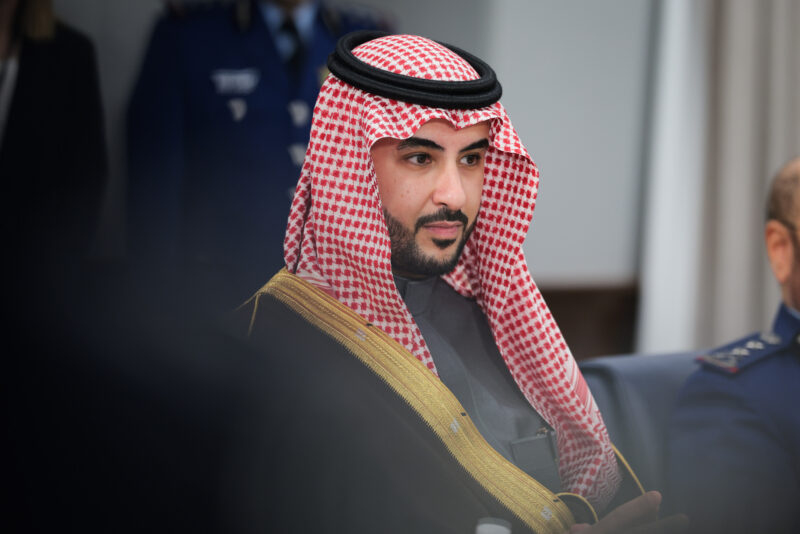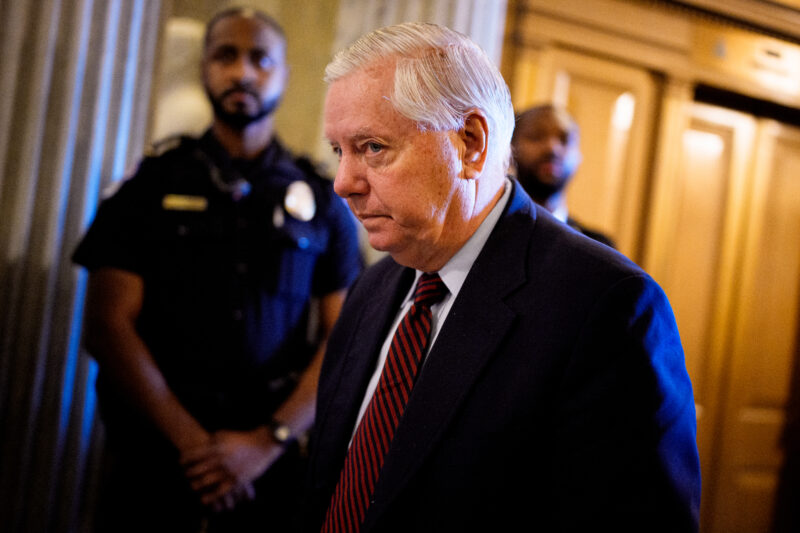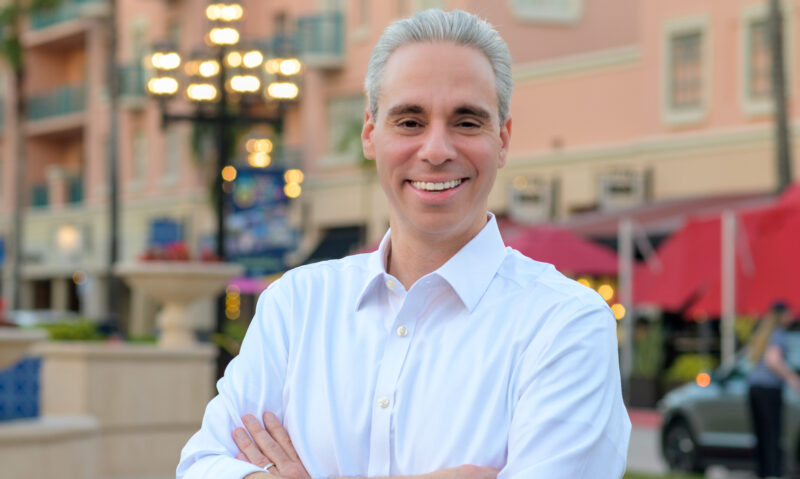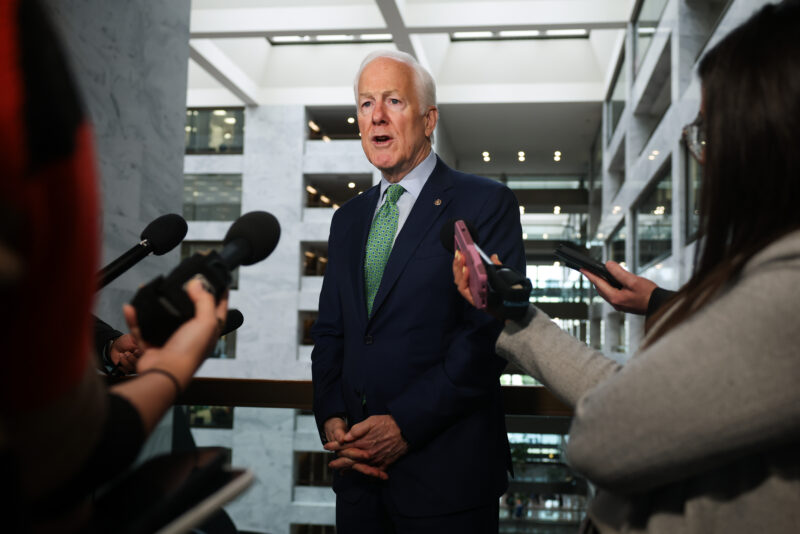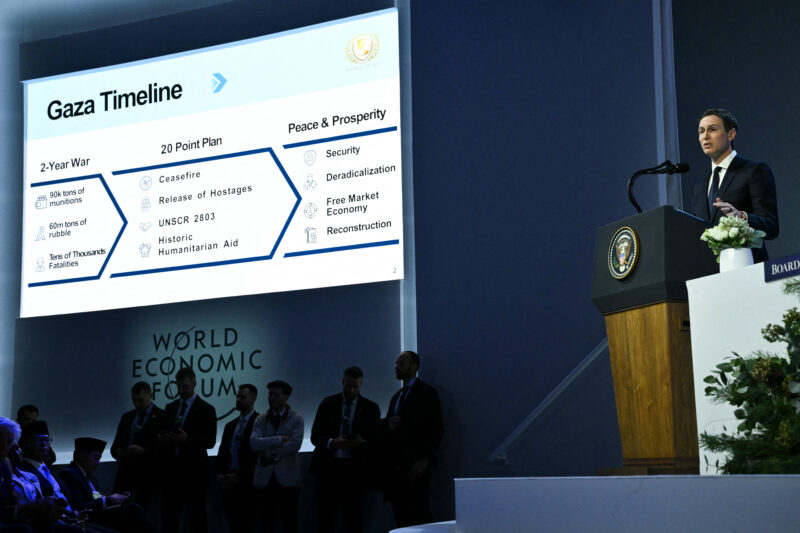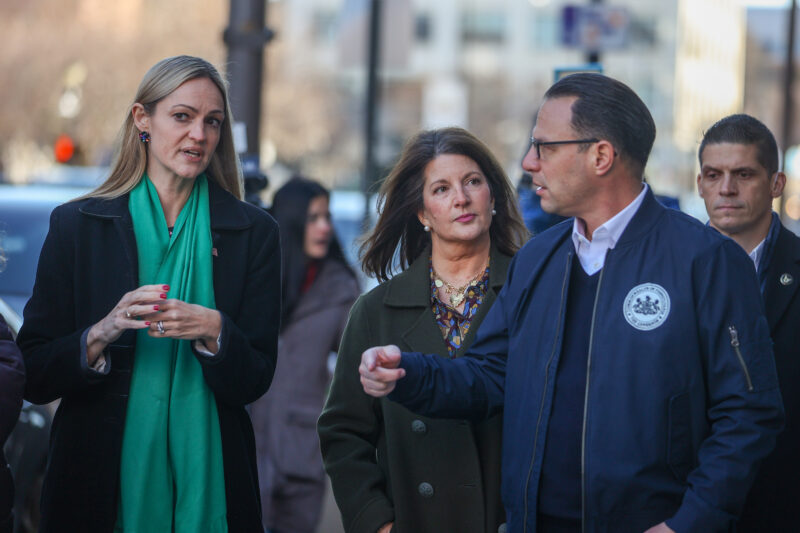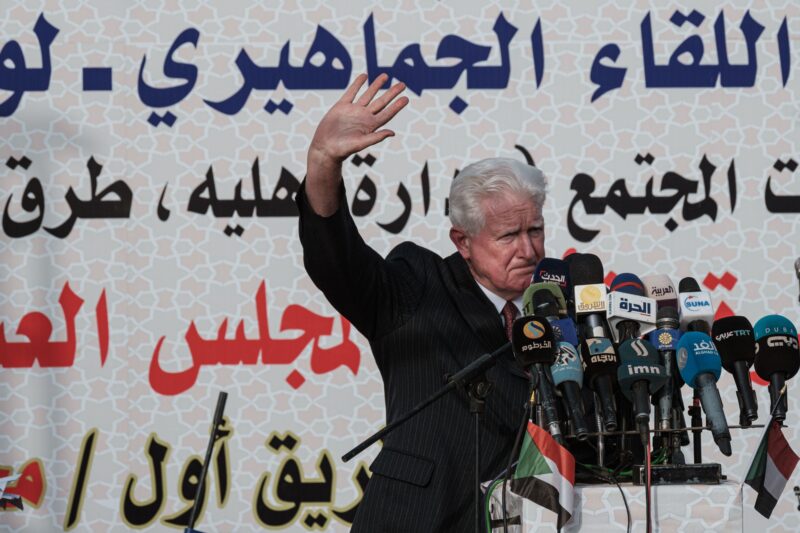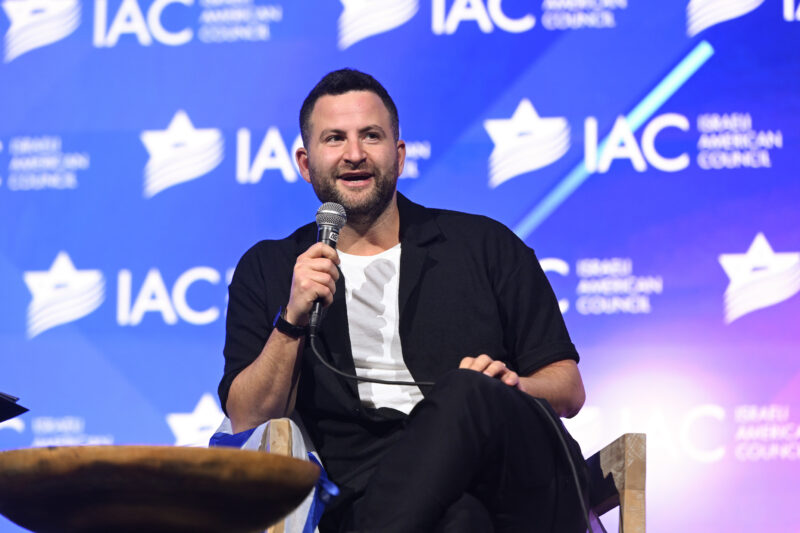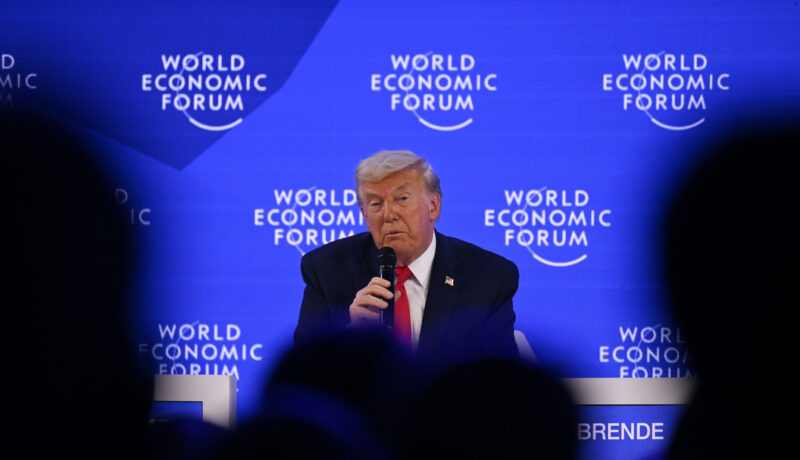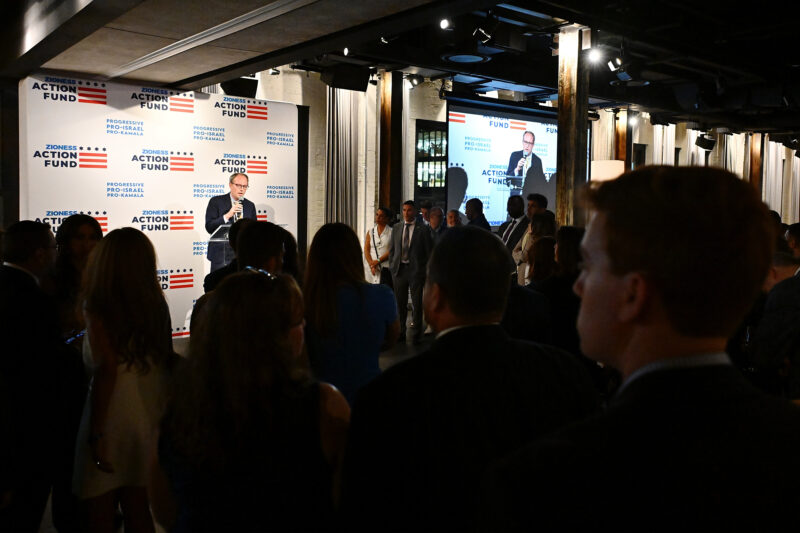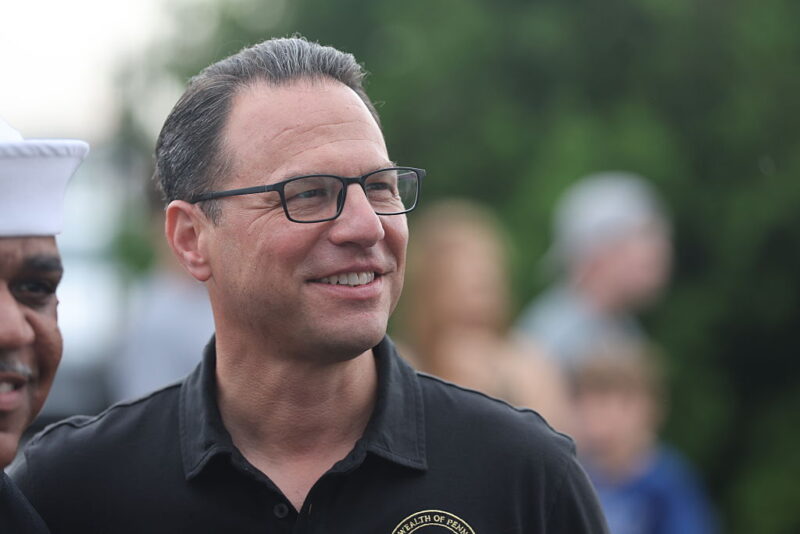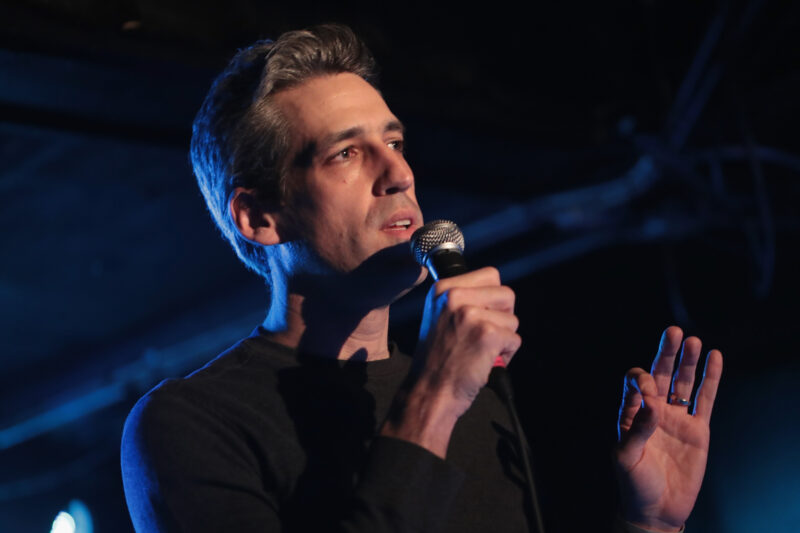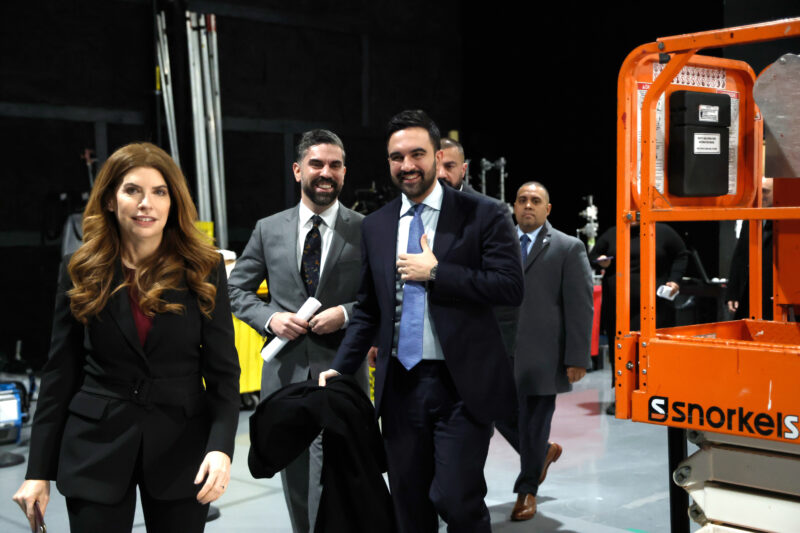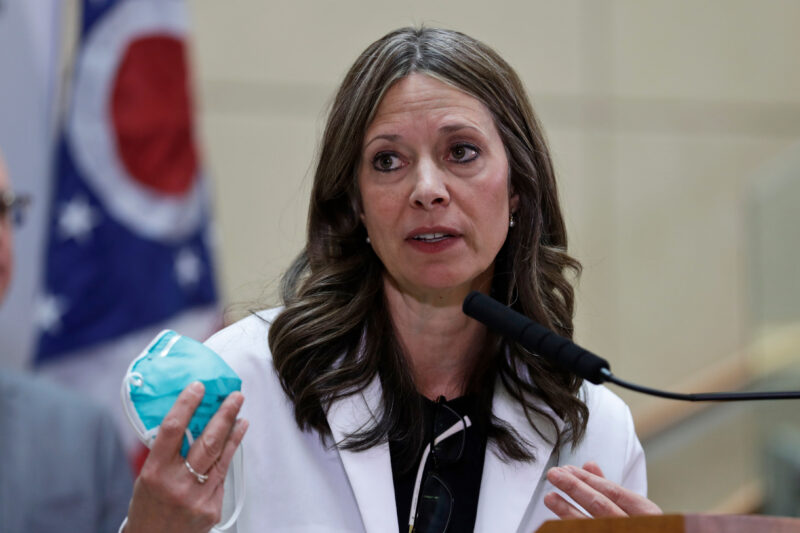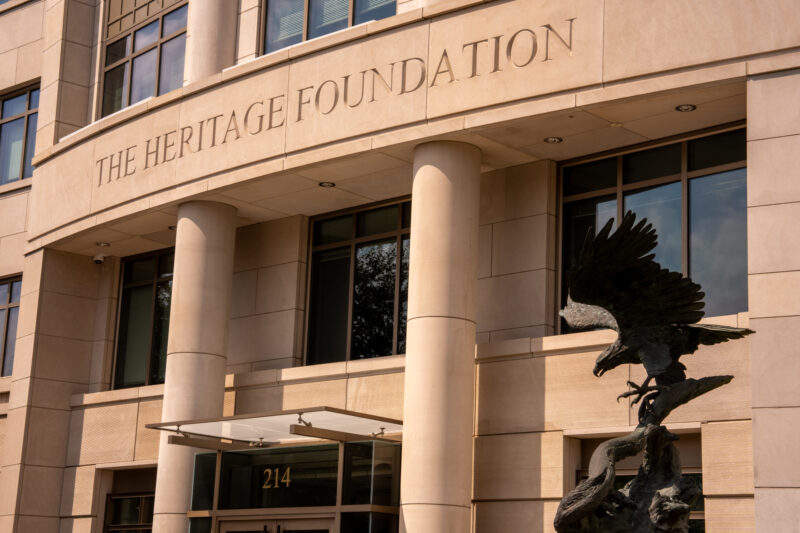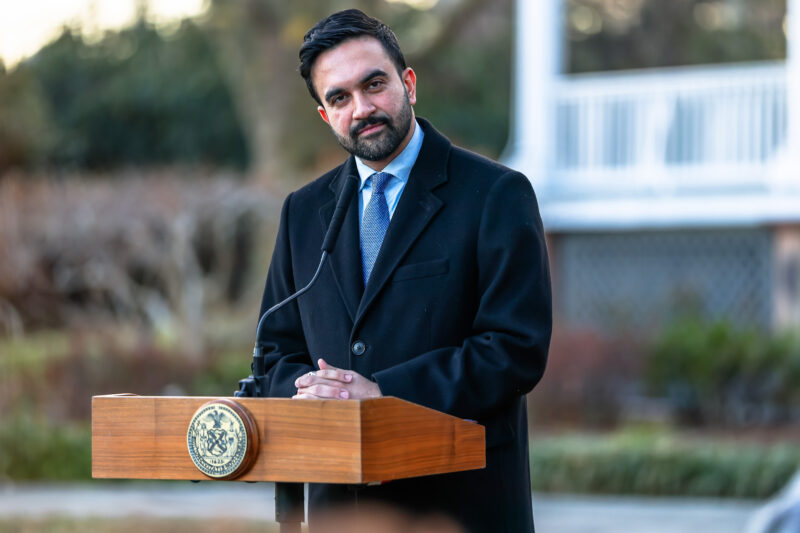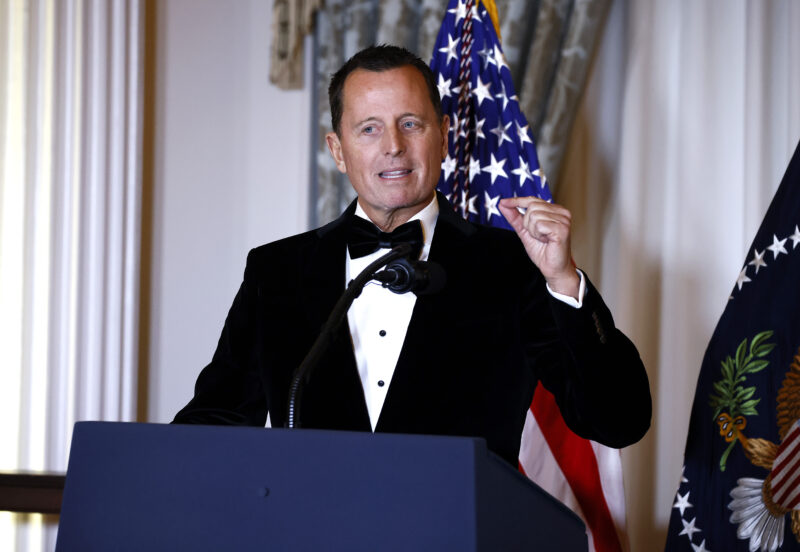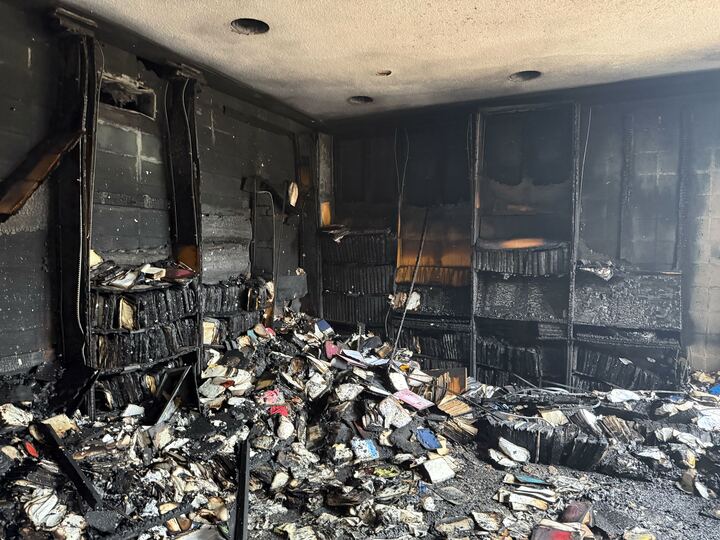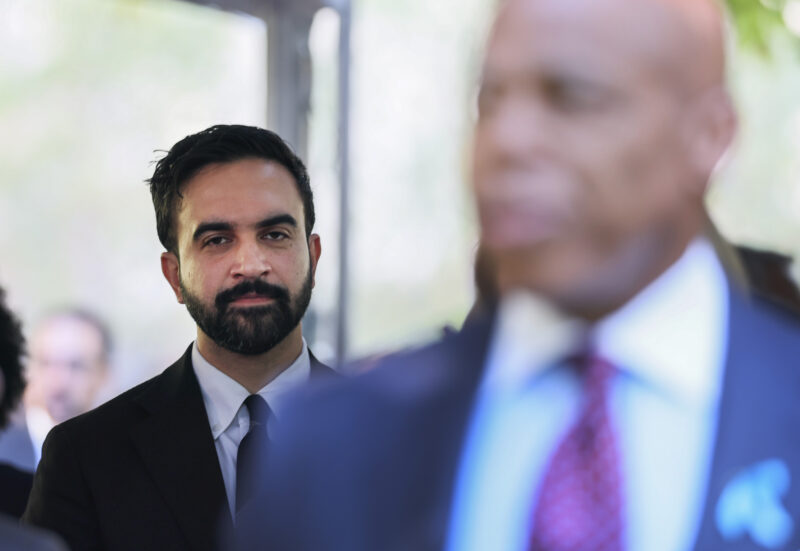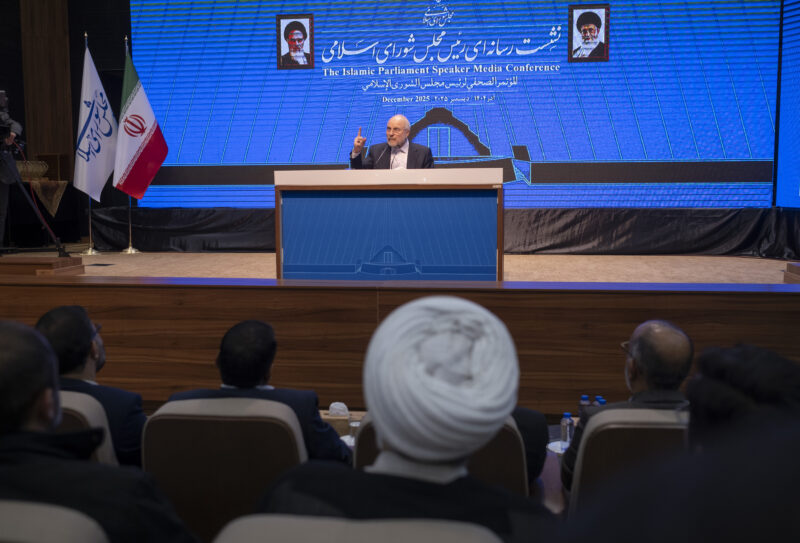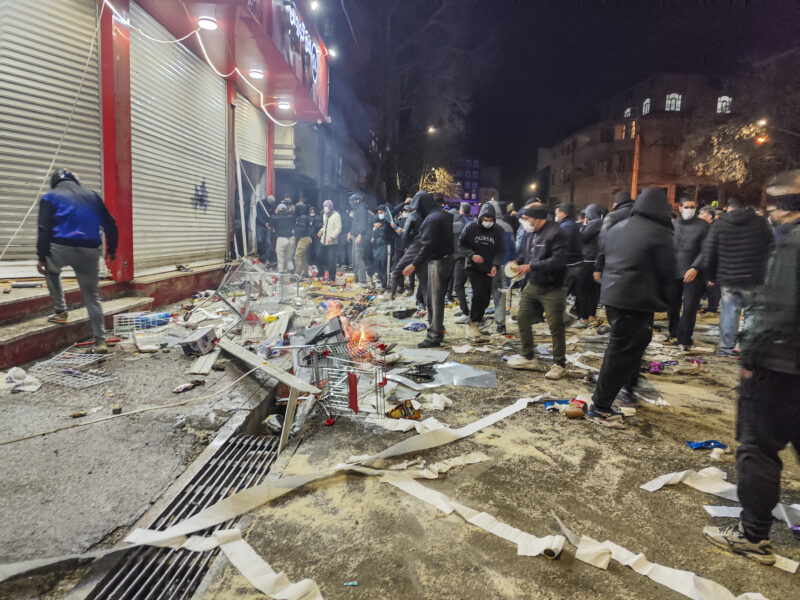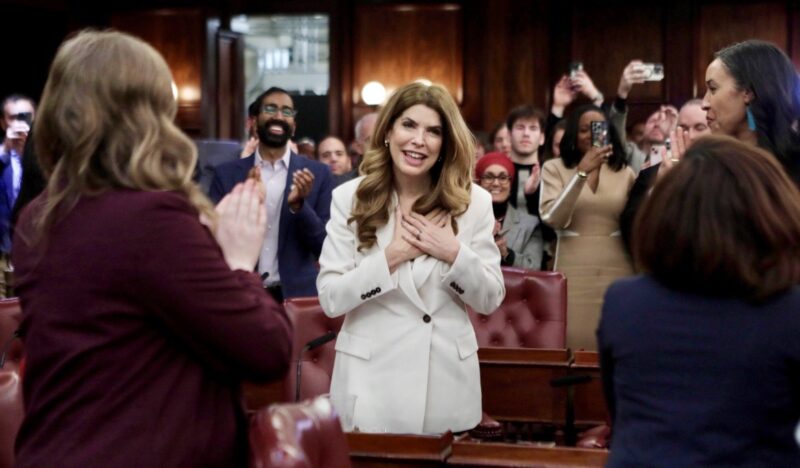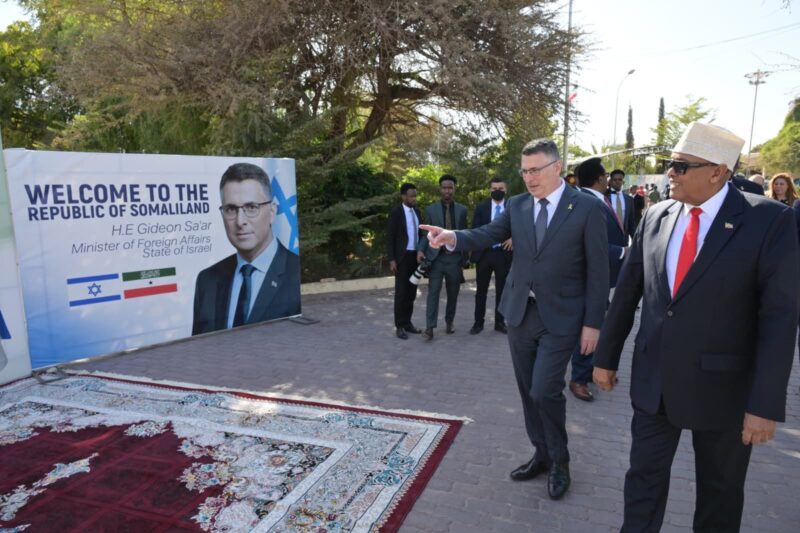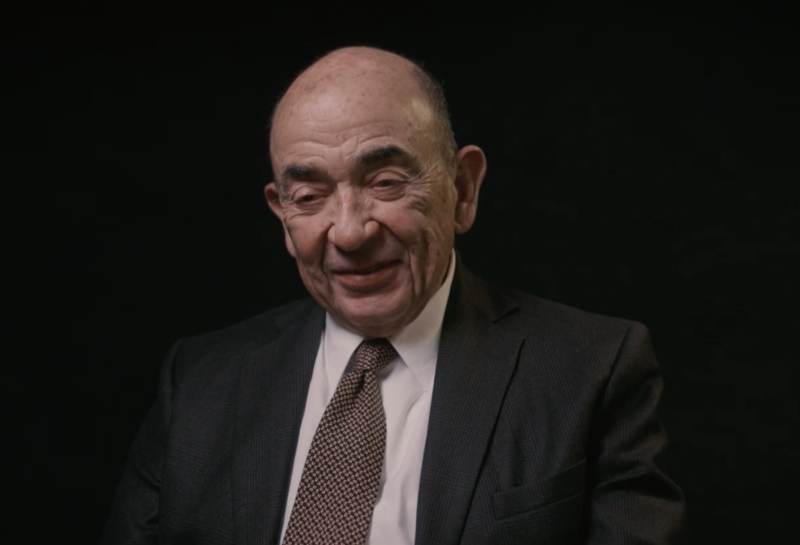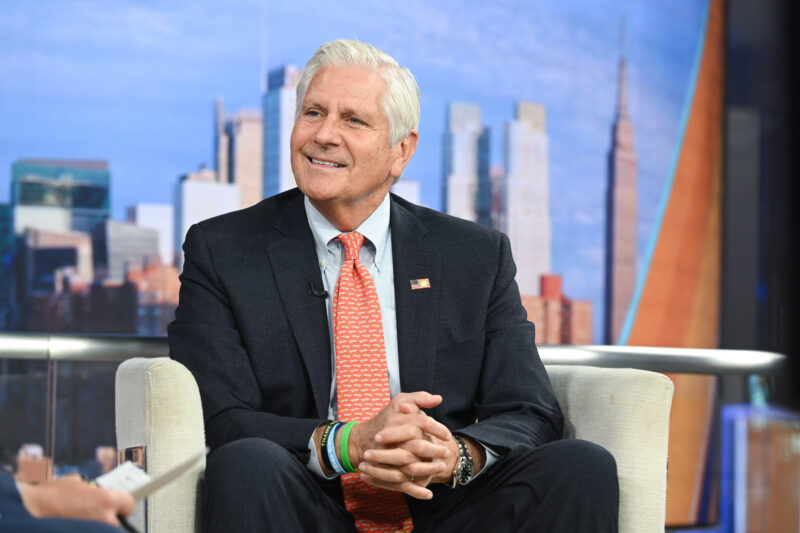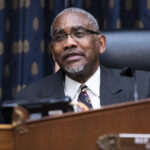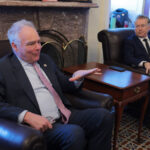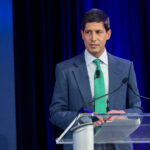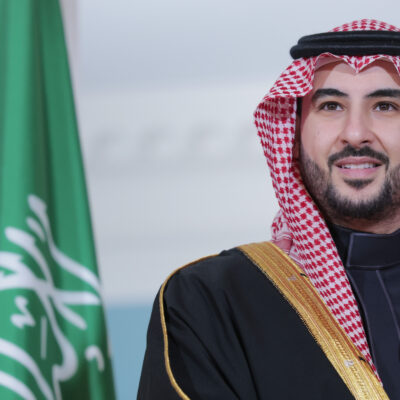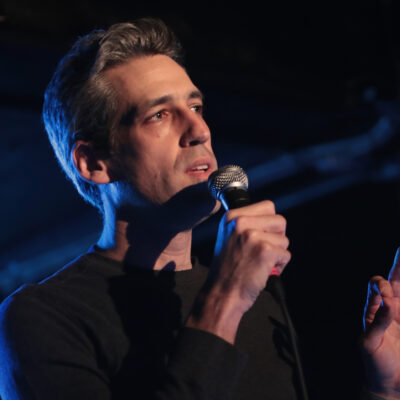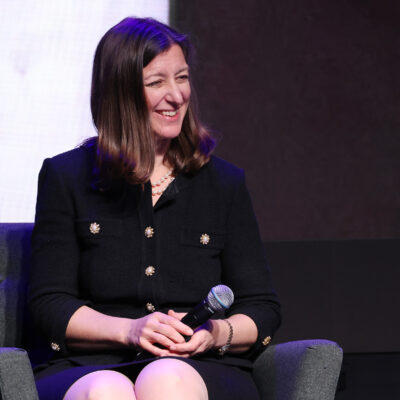Witkoff sends mixed messages on Iranian nuclear enrichment
The Middle East envoy walked back comments suggesting the U.S. would be open to a deal with Iran that did not require the dismantlement of its nuclear program

CHIP SOMODEVILLA/GETTY IMAGES
White House special envoy Steve Witkoff briefly speaks to reporters as he walks back into the West Wing following a television interview on the North Lawn of the White House on March 19, 2025 in Washington, D.C.
The Trump administration’s Middle East envoy, Steve Witkoff, who is leading U.S. nuclear talks with Iran, again suggested on Monday that the U.S. is willing to allow Iran to maintain some level of nuclear enrichment, as it did during the original 2015 nuclear deal. But Witkoff appeared to walk back those remarks on Tuesday, saying that the U.S. is demanding that Iran eliminate its enrichment and weaponization programs.
“The conversation with the Iranians will be much about two critical points: One, enrichment. As you mentioned, they do not need to enrich past 3.67%,” Witkoff said on Fox News on Monday. “You do not need to run a civil nuclear program where you’re enriching past 3.67%. This is going to be much about verification on the enrichment program. And then ultimately verification on weaponization. That includes missiles.”
Allowing Iran to continue any nuclear enrichment provides Tehran with an easy pathway to a nuclear weapon, critics have argued.
But Witkoff offered a different position on Tuesday in a post on X.
“Any final arrangement must set a framework for peace, stability, and prosperity in the Middle East — meaning that Iran must stop and eliminate its nuclear enrichment and weaponization program,” Witkoff wrote.
Witkoff’s follow-up post reportedly came around the time of a White House meeting held by President Donald Trump on the nuclear negotiations. The new comments appeared to contradict both his remarks on Fox News and other recent comments that the U.S. would be open to a deal that included verification that Iran is not weaponizing its nuclear program, and that dismantlement was only an opening negotiating position.
Witkoff’s initial comments on Fox set off a wave of concerned reactions from the U.S. and Israel. Some Iran hawks appear concerned that the Trump administration may be headed toward a deal similar to the Joint Comprehensive Plan of Action. Analysts seen as more sympathetic to the regime, meanwhile, celebrated the initial remarks.
Following Witkoff’s Tuesday comments, Sen. Ted Cruz (R-TX) decried anyone in Trump’s orbit pushing for a repeat of the 2015 deal.
“Anyone urging Trump to enter into another Obama Iran deal is giving the President terrible advice,” Cruz said. “[Trump] is entirely correct when he says Iran will NEVER be allowed to have nukes. His team should be 100% unified behind that.”
Cruz was responding to a post from conservative commentator Mark Levin expressing deep skepticism of a new deal with Iran. Levin has openly criticized Witkoff’s apparent concessions to the Iranian regime.
Sen. Tom Cotton (R-AR) responded similarly to Levin’s post.
“As President Trump said, the only solution is Iran completely dismantling its program, or we should do it for them,” Cotton said. “Those who minimize the risk of this regime are dead wrong. Just look at the hundreds of missiles Iran launched at Israel in the past year, aimed at massacring civilians (including many Americans living in Israel). Imagine how much worse it would be with a nuclear weapon.”
Last week, before talks in Oman began, a group of nine House Republicans led by Rep. Claudia Tenney (R-NY) wrote to the administration standing behind the position that Iran’s nuclear program must be “fully and verifiably dismantled.”
“The JCPOA’s failed sunset provisions, lack of robust verification mechanisms, and allowance for continued centrifuge development have all but ensured Iran’s ability to achieve nuclear breakout within a matter of months,” the lawmakers wrote. “The regime in Iran must understand that there is no situation which allows it to retain a nuclear weapons capability, and there is no scenario in which the United States will accept anything short of its full and permanent disarmament.”
Former Israeli Prime Minister Naftali Bennett argued on X on Tuesday, before Witkoff’s walk-back, that “the only deal worth making with Iran” would be one that not only completely dismantles its nuclear program but also ends its sponsorship of terrorism and its ballistic missile program.
“Under President Trump’s leadership, the US has amassed for itself unprecedented leverage,” Bennett said. “It would be a historic miss to allow Iran to regroup and threaten us—the US, Israel and the rest of the world—again.”
Mark Dubowitz, the CEO of the Foundation for Defense of Democracies, told Jewish Insider he believes Witkoff “wants to return to” the JCPOA and had, in his public comments, “effectively conceded enrichment to the Iranians.”
“His challenge is that he has to come back with a deal that doesn’t look like [the] JCPOA, because then Trump would be embarrassed by having signed a deal that essentially is the same deal he withdrew from in 2018,” Dubowitz said. “Witkoff’s challenge is to figure out how to present [the] JCPOA but to do it in a way that looks like it’s a better deal.”
Dubowitz argued that it’s essentially impossible to implement sufficient safeguards and verification to prevent Iran from developing a nuclear warhead — as Witkoff had appeared to suggest on Fox — “because the Iranians can build a warhead in a laboratory the size of a classroom in a country that’s two-and-a-half times the size of Texas.”
“I think [Witkoff] comes out and makes these comments about enrichment and then congressional Republicans get upset or [National Security Advisor Mike] Waltz and [Secretary of State Marco] Rubio push back hard internally, and [Secretary of Defense Pete] Hegseth, and then he comes back and makes his statement today,” Dubowitz said. “He’s kind of going back and forth between conceding enrichment and dismantlement depending on who his audience is.”
Jason Brodsky, the policy director of United Against Nuclear Iran, told JI that allowing Iran to continue enriching uranium to 3.67% “would enable” Iran to “extort the United States,” and said that Trump should remain consistent on insisting on full dismantlement of Iran’s nuclear program.
Brodsky said that allowing Iran to enrich to 3.67% was the “original sin” of the JCPOA “and that set the table for the situation that we’re in today.”
“We need to learn the lessons of the past,” Brodsky said. “The JCPOA framework failed … It’s a flawed, fundamentally failed framework of dealing with the Iranian issue.”
Brodsky praised one element of Witkoff’s original Fox comments: limits on Iran’s missile program. The lack of provisions relating to the missile program “was one of the flaws of the original JCPOA,” Brodsky said.
“But also there are a lot of other questions regarding sanctions relief and mechanisms to prevent Iran from using sanctions relief … under any deal from funding its malign behavior in the region,” Brodsky continued.
Dubowitz argued that it will ultimately be up to Trump whether to accept a deal along the lines of the JCPOA and “spin it as the greatest deal ever negotiated” in order to bring sufficient congressional support.
He said he thinks it will be difficult for congressional Republicans to agree to a deal similar to the JCPOA given that many of them rejected that deal in 2015. “The Iran issue, to me, is the exception where Trump cannot have his way … given the congressional investment in this issue over 20 years.”
Dubowitz added that Israel would also need to decide whether and how to publicly oppose such a deal and how to calibrate its military operations, or if it would defer to Trump. He further warned that allowing Iran — and potentially Saudi Arabia — to enrich could set off a worldwide “proliferation cascade.”
Former U.S. Ambassador to Israel Daniel Shapiro, a senior fellow at the Atlantic Council who also served in senior State Department and Pentagon roles in the Biden administration, told JI that Witkoff’s comments on Fox were “certainly confusing to many audiences — the Iranians, Congress, maybe others in the administration” coming as Witkoff’s first public interview following the talks in Oman.
“It may be that the president is zig-zagging a bit on what he thinks is an acceptable deal, and that means his negotiator has to make adjustments, but it’s probably a mistake to do that in public on a day-to-day basis,” Shapiro said.
Shapiro said he continues to believe it will be difficult to achieve an agreement that would dismantle the Iranian nuclear program. He said he did not think it’s likely that the administration or Congress would agree to a deal that allows continued enrichment, adding that returning to a JCPOA-type scenario would be technically difficult given the advancement in Iran’s nuclear program in the ensuing years.
Shapiro suggested it’s more likely that talks will stall, that snapback sanctions will be imposed and that Iran will respond by withdrawing from the Nuclear Nonproliferation Treaty or making a move toward weaponization, which would require the U.S. and Israel to consider a military response.
The former ambassador argued in a recent article that the opportunity is ripe for military action against Iran’s nuclear program. “The timing, need, and opportunity may never be more compelling. And, arguably, a military option is more feasible now than at any time in recent decades,” Shapiro wrote.
Shapiro told JI that, alternatively, the U.S. and Iran could agree to an extension of the snapback deadline to continue talks and/or a “freeze-for-freeze” deal with some sanctions rollback and potentially a reduction in Iran’s nuclear stockpile. “That’s a possible scenario, but even that agreement is going to be very difficult to reach, given how advanced the Iranian program is right now.”
Witkoff’s follow-up comments on Tuesday appeared to ease some concerns in Washington.
Sen. Lindsey Graham (R-SC), who has been skeptical of efforts to negotiate with Iran, approvingly reposted Witkoff’s later comment, saying, “Completely agree with Special Envoy Witkoff’s statement that any deal with Iran regarding its nuclear program cannot include an enrichment capability because that is how you make a nuclear weapon.”
Rep. Mike Lawler (R-NY) responded to Witkoff’s post saying, “Any deal with Iran must include a complete end to their nuclear program. No exceptions.”
AIPAC in a statement thanked Witkoff “for your insistence that Iran eliminate its enrichment and weaponization programs entirely. Time-bound negotiations must permanently and verifiably dismantle Iran’s nuclear weapons program.”




